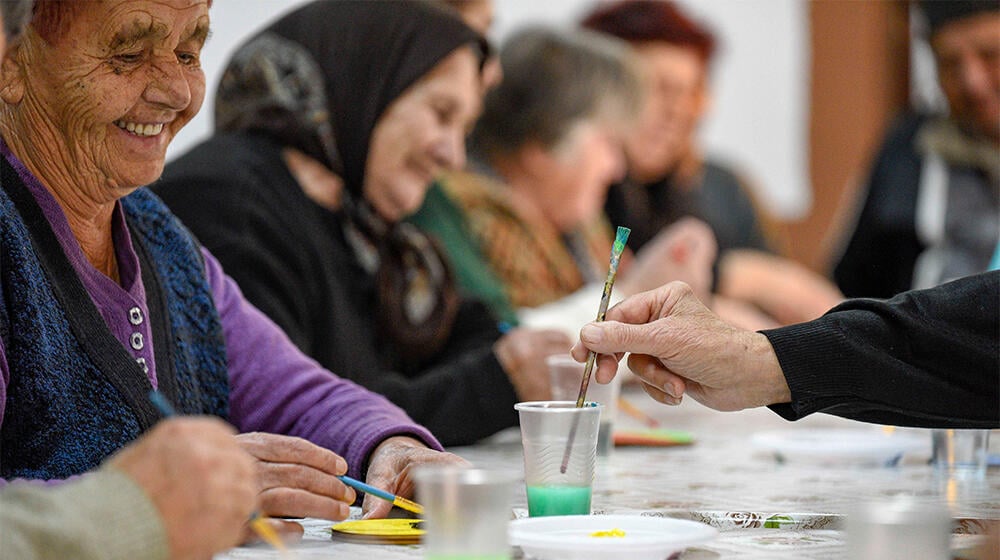Our world is aging – and this is a triumph of development.
Innovations in health and poverty reduction have extended lives on a global scale, and there is much to celebrate: In many cultures, older persons play critical societal roles, serving as community leaders and caregivers.
Currently persons aged 50 and over account for a quarter of the global population. While developed countries today have the majority of the elderly, developing countries have an abrupt increase in average age in population as well, leaving many ill prepared for the new realities.
In addition to improvements in life expectancy, the trend of falling fertility rates is another reason for the population aging in the world. In fact, more than 60 per cent of the world population lives in countries that have a total fertility rate below the “replacement level” – the average rate needed to replace a population over time – of 2.1 live births per woman.
The situation in Türkiye draws a parallel with the global trend. The ratio of older people in the country rose to 10.2% in 2023 while it was 8.8% in 2018. Projections on Türkiye’s population indicate that one in four people in 2050 will be an older (aged 50 and over) person. Also, the average age is expected to rise to 45 in 2050 from the current 34. On the other hand, the life expectancy at birth has increased regularly since the second World War. The indicator was 30 years for males and 33 years for females in the beginning of 1940’s. Life expectancy at birth is 77.3 years in 2021-2023 and 74.7 for males, and 80 years for females. Fertility rate in Türkiye also dropped from 2.38 in the year 2001 to 1,51 in 2023, a decline in fertility.
Globally, older people and their care are often portrayed as “burdens.” This perspective must shift for societies to harness the positive change that accompanies aging. With that in mind, this year's theme for the International Day of Older Persons is “Aging with dignity: The importance of strengthening care and support systems for older persons worldwide.”
Due in part to ageism and shortages in skilled care, global trends such as migration, displacement, climate change and conflict disproportionately affect older persons, leaving them vulnerable to exclusion and neglect. Record levels of population movement are heightening risks that older persons will be left behind without community or family support. Older people may also suffer neglect by health providers, which is exacerbated by a lack of care workers, especially for elderly people facing challenging situations such as crisis and conflict.
Investing in solid care systems for older persons benefits everyone: It can spur economic growth by creating more jobs and opportunities for providers, while ensuring that older persons’ needs and rights are satisfied. Indeed, demographically diverse countries will fulfill their potential when societies act in the best interest of people of all ages, and when younger and older people support each other.
The needs of older people should not be viewed as competing with those of younger generations. Instead, countries and societies should study how younger and older people can benefit from the exchange of information and support on issues, including the use of technology, for example, to empower older persons to access remote medicine and other essential goods and services.
Countries must act today to ensure that robust social support systems – including pensions and health-care systems – are in place for the older persons of tomorrow.
UNFPA supports integrated approaches to mental and physical health care for older people, including through the use of care centers, which provide access to services as well as additional opportunities to socialize. UNFPA sees this population as a vital part of economies and societies, not as a group to be discounted.


